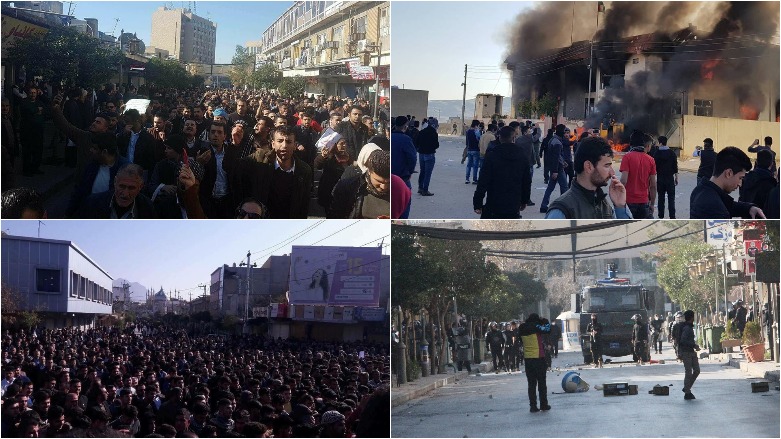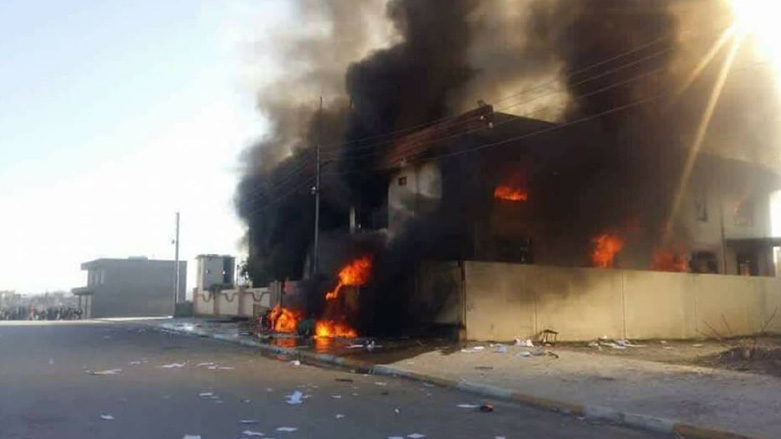People protest in Kurdistan’s Sulaimani for salary delay, lack of services

ERBIL, Kurdistan Region (Kurdistan 24) – Thousands of people on Monday poured onto the streets of Sulaimani and Halabja provinces in protest against a delay of salaries and the lack of public services in the Kurdistan Region.
The protests took place in Sulaimani, Halabja, Rania, Chamchamal, Seyid Sadiq, Qaladize, Taq Taq, Kalar, and Rawanduz.
Most of the protestors were public school teachers who expressed their anger at the salary delays and strict measures taken by the Kurdistan Regional Government (KRG) while others were calling for better public services.
The protestors were also calling for reform and changes in the government to address and combat corruption.
The demonstrators set fire to the Kurdistan Democratic Party (KDP) office in the Piramagroon area as well as burning tires to block the road.
People threw stones at police who were firing smoke grenades to try and stop the protestors in some places.
KDP is the largest political party in the Kurdistan Region with 38 seats in the Kurdistan Parliament. Members of the party expressed their concern about the attacks on their offices, noting the government is made up of other factions as well.
Light injuries have been reported from both sides, but the number of casualties remains unknown as the protests are ongoing.
The Kurdistan Region has been experiencing a critical financial crisis since the beginning of 2014.
KRG officials relate the crisis to the dramatic drop of oil prices internationally, the arrival of 1.8 million refugees and displaced people to the Region, Baghdad’s cut of Kurdistan’s budget share, and the war against the Islamic State (IS).
The attack and takeover of oil-rich Kirkuk Province and other disputed territories by Iraqi forces and the Iranian-backed Shia Hashd al-Shaabi militias decreased the KRG’s oil export volume in half, Prime Minister of the Kurdistan Region Nechirvan Barzani previously said.
The government largely depends on oil revenue—which makes up over 90 percent of the Kurdistan Region’s income—to fulfill expenditures, government employees’ salary, and public services.
Editing by Karzan Sulaivany

